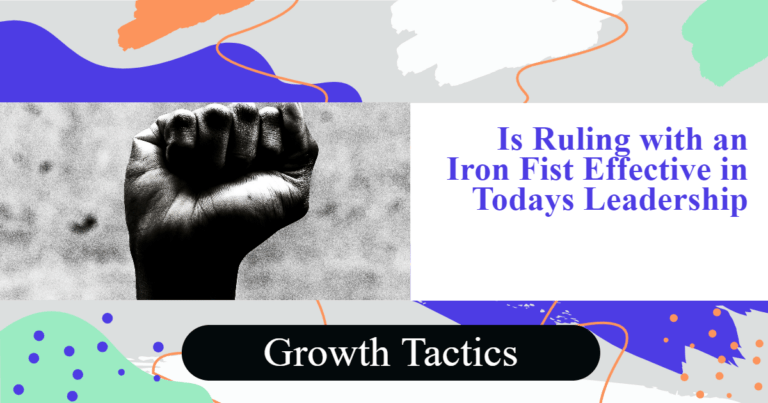In the high-stakes environment of job interviews, showcasing your leadership skills can be anything but straightforward. With only a short window of opportunity to make an impression, illustrating the breadth and depth of your leadership qualities, from your ability to motivate and inspire others to your knack for decision-making and problem-solving, is no small feat. This article is designed to bridge that gap.
Whether you’re struggling to put your experience into words, uncertain about which examples best demonstrate your leadership, or simply looking for ways to convey your leadership style confidently, I’m here to guide you. Together, we’ll navigate through the nuances of effectively highlighting your leadership skills in interviews, ensuring you leave a lasting impression that sets you apart from the competition.
Jump To Section
Understanding the Leadership Skills Employers Seek
When it comes to the professional arena, leadership skills often top the list of attributes that employers are eager to find in potential candidates. But what exact skills are these employers seeking, and why are they so crucial for both the individual and the organization?
Here are some of the most sought-after leadership qualities:
1. Visionary Leadership
An effective leader has the ability to outline a clear and compelling vision for the future. Employers value candidates who can set a direction and inspire others to follow suit. A visionary leader anticipates trends, sets goals and develops strategies that guide the organization towards long-term success.
2. Decisiveness
In the fast-paced business world, indecision can be costly. Employers look for leaders who can make thought-out, timely decisions. This trait demonstrates confidence in one’s abilities and the courage to take calculated risks when necessary.
3. Effective Communication
Leaders must be able to communicate their ideas, expectations, and feedback clearly and persuasively. Employers seek candidates who can articulate their thoughts effectively and listen actively, ensuring that all team members are aligned and informed.
4. Ability to Motivate and Inspire
An effective leader brings out the best in their team. Through recognition, encouragement, and trust, they motivate individuals to exceed their own expectations and contribute to the organization’s objectives.
5. Emotional Intelligence
Leaders with high emotional intelligence can manage their own emotions and also recognize and influence the feelings of others. Employers appreciate leaders who are empathetic, adaptable, and capable of navigating the complex interpersonal aspects of the workplace.
6. Problem-Solving Skills
Leaders are often at the forefront of solving issues that arise within their team or the broader organization. Strong analytical skills, a logical approach, and creativity in solving problems are valued leadership qualities.
7. Delegation and Empowerment
Knowing how to delegate tasks effectively is a sign of a confident leader. Employers seek those who can entrust tasks to the right team members, empower them with the autonomy to complete the task, and hold them accountable for the outcomes.
8. Integrity and Accountability
Integrity breeds trust, and accountability ensures that leaders take responsibility for their actions and decisions. Employers need leaders who adhere to high ethical standards and encourage a culture of accountability.
9. Adaptability and Resilience
Organizational needs constantly change, and so must its leaders. Employers prize leadership flexibility and the resilience to face challenges head-on and bounce back from setbacks.
10. Mentoring and Coaching Ability
Leaders not only lead but also develop the next generation of leaders. Employers desire candidates who are willing to invest time in mentoring and coaching team members to help them grow within the company.
How to Describe Your Leadership Qualities
Effectively conveying your leadership skills during an interview is crucial. You’re not just stating a fact – you’re telling a compelling story that illustrates your ability to lead. But how can you describe your leadership qualities in a way that’s both authentic and impactful? Let’s explore key strategies to help you articulate your leadership skills convincingly.
Reflect and Select Your Best Examples
Begin by reflecting on your past experiences where you’ve effectively demonstrated leadership. Perhaps you spearheaded a project, resolved a conflict, or motivated your team through a challenging period. Select examples that not only showcase your leadership skills but also resulted in a positive outcome. These stories will serve as the foundation for illustrating your qualities.
Use the STAR Method
The STAR method (Situation, Task, Action, Result) is a structured way of telling your leadership stories. It helps you present your experiences in a clear, concise, and engaging manner:
- Situation: Describe the context within which you demonstrated your leadership. What was the challenge or opportunity?
- Task: Explain your specific role. What goals were you aiming to achieve?
- Action: Detail the steps you took to address the situation. Highlight your leadership approach and the skills you employed.
- Result: Share the outcome of your actions. Quantify your success if possible and reflect on what you learned from the experience.
Articulate Your Leadership Style
Leadership comes in many forms, and understanding your unique style can set you apart. Are you more of a transformational leader who inspires and motivates? Or do you lean towards being a servant leader, focusing on the growth and well-being of your team members? Explain your leadership style by sharing how you engage with your team, make decisions, and drive results.
Highlight Your Impact
Employers are interested in leaders who can make a tangible impact. When describing your leadership qualities, focus on how your leadership has positively affected your team, the projects you’ve handled, and the organization’s bottom line. Use metrics and specific achievements to quantify your impact where possible.
Demonstrate Emotional Intelligence
Leadership isn’t just about strategies and outcomes; it’s also about people. Showcasing your emotional intelligence—your ability to be aware of, control, and express your emotions, and handle interpersonal relationships judiciously and empathetically—is vital. Share examples of how you’ve navigated complex team dynamics, resolved conflicts, or fostered a positive work environment through empathy and understanding.
Be Authentic
While it’s important to highlight your successes, being authentic and humble can be just as powerful. Share challenges you’ve faced as a leader and how you overcame them. This not only humanizes you but also shows your resilience and ability to learn and grow from your experiences.
Adapt to the Organization’s Culture
Finally, align your leadership qualities with the company’s culture and values. Research the organization ahead of time to understand what they’re looking for in a leader. Tailor your responses to demonstrate how your leadership style and qualities will fit within and contribute to their culture.
Preparing for Common Leadership Interview Questions

When gearing up for an interview focusing on your leadership capabilities, it’s critical to anticipate the types of questions that might be asked. Knowing these questions and preparing your responses in advance can significantly enhance your confidence and performance. Below is a guide on how to prepare for some of the most common leadership interview questions, helping you to craft responses that demonstrate your strengths, experiences, and leadership philosophy.
Understand the Core Leadership Qualities Being Assessed
Begin by understanding the leadership qualities that the employer values most. These can often be inferred from the job listing, the company’s values, or its leadership competency framework if available. Common qualities include vision, decisiveness, communication, empathy, and adaptability. Tailor your responses to highlight these qualities, using specific examples from your experience.
Common Leadership Interview Questions and How to Approach Them
1. Can you describe your leadership style?
Approach: Explain your leadership style succinctly, whether it’s transformational, servant leadership, authoritative, or a blend of styles. Provide examples of how this style has enabled you to achieve results, foster team cohesion, or navigate challenges effectively.
2. How do you motivate a team?
Approach: Share specific strategies you’ve used to inspire and motivate team members, such as setting clear goals, recognizing achievements, providing constructive feedback, and creating an inclusive team culture. Cite a situation where your approach significantly improved team performance or morale.
3. Tell me about a time you led a project. What was the outcome?
Approach: Employ the STAR method to structure a compelling story about a project you led. Focus on how you planned and executed the project, the leadership skills you applied, the challenges faced, and the final results. Highlight what you learned from the experience and the impact on the organization.
4. How do you handle conflict within your team?
Approach: Describe your approach to conflict resolution, emphasizing active listening, empathy, and finding win-win solutions. Provide an example of a conflict you managed and how your intervention led to a positive resolution and strengthened the team.
5. Describe a failure in your leadership role. What did you learn from it?
Approach: Showing vulnerability and the capacity to learn from mistakes is a strength. Share a situation where things didn’t go as planned, focusing on your reflections, the lessons learned, and how it influenced your future leadership decisions.
6. How do you identify and develop potential leaders?
Approach: Highlight your commitment to mentoring and talent development. Discuss how you recognize leadership potential and the methods you use to nurture and prepare emerging leaders, such as coaching, providing challenging opportunities, and offering constructive feedback.
7. How do you stay current with industry trends and adjust your leadership approach accordingly?
Approach: Discuss your methods for staying informed, such as continuous learning, networking, and strategic thought leadership. Offer examples of how you have adapted your leadership strategy or spearheaded innovation in response to industry changes or new insights.
Tips for Effective Response Preparation
- Practice, Don’t Memorize: While it’s important to prepare your responses, your answers should come across as natural and authentic rather than scripted.
- Be Concise: Aim to deliver your responses succinctly. Practice distilling your stories and insights into clear, impactful statements.
- Reflect Your Passion: Let your enthusiasm for leadership shine through. Genuine passion and excitement can be highly compelling to interviewers.
Sharing Your Leadership Experience with Confidence
Confidence is key when sharing your leadership experience, as it convinces interviewers of your capabilities and readiness to take on leadership roles. Your ability to speak confidently about your experiences not only showcases your skills but also reflects your self-assuredness in handling challenges and leading teams to success. Below are strategies to help you share your leadership experience with confidence during interviews or networking opportunities.
Prepare Thoroughly
The foundation of confidence is preparation. Begin by cataloging your leadership experiences, focusing on the ones that are most relevant and impactful. For each experience, outline the key points you want to share, including the challenges faced, actions taken, and the results achieved. Being well-prepared allows you to speak fluently and confidently about your experiences.
Know Your Value Proposition
Understanding and articulating your unique value as a leader is crucial. What makes your leadership style effective? How have you made a difference in your past roles? Be clear about your strengths and the specific contributions you can make to an organization. Your value proposition should succinctly summarize why you’re an asset as a leader.
Use Positive, Assertive Language
The words you choose matter. Use positive, assertive language that conveys your achievements and abilities confidently. Instead of saying, “I think I did well in handling the project,” say, “I successfully led the project, achieving all set goals ahead of the deadline.” This slight shift in language can significantly impact how your message is received.
Practice Storytelling

People are naturally drawn to stories, and storytelling is a powerful way to share your experiences. Prepare short, compelling narratives using the STAR method to highlight your key leadership moments. Practicing these stories will help you recount them smoothly and engagingly, making a memorable impression.
Showcase Emotional Intelligence
Confidence isn’t just about asserting your achievements; it’s also about showing self-awareness and empathy. Share examples that highlight your emotional intelligence, such as how you’ve navigated team conflicts, fostered a positive team culture, or supported team members’ growth. Demonstrating emotional intelligence alongside your leadership skills presents you as a well-rounded and confident leader.
Handle Weaknesses and Failures Gracefully
No leader is perfect, and acknowledging your areas for improvement can actually bolster your confidence. When discussing weaknesses or failures, focus on what you learned and how these experiences have made you a better leader. This shows confidence in your ability to grow and adapt.
Engage with Your Audience
Confidence is also conveyed through how you engage with your audience. Make eye contact, use open body language, and be attentive to the interviewer’s cues. Treat the interview as a two-way conversation, showing genuine interest in the organization and how you can contribute. This level of engagement demonstrates not only confidence in your abilities but also your enthusiasm for the role.
Prepare for Pushback
In some instances, interviewers may challenge your experiences or question your decisions. Prepare for this by reflecting on potential pushbacks and how you can address them positively. Stand by your actions confidently, explaining your rationale and what you learned from the experiences.
Conclusion
In closing, effectively describing your leadership skills in interviews is about clarity and authenticity. It’s your opportunity to shine a light on your achievements, communicate your unique approach to leadership, and illustrate how your experiences align with the needs of the organization. Be prepared to share compelling stories that showcase your skills, adaptability, and growth as a leader.
Confidence is crucial, but it must be balanced with humility and a willingness to learn. Remember that each interview is a chance to not only present yourself but also to engage in a meaningful discussion about your past impact and future potential. Approach these conversations with a clear understanding of your strengths, a genuine enthusiasm for new challenges, and the assurance that your leadership can drive positive change. With this mindset, you’ll leave a lasting impression as a leader who is ready to inspire and lead teams to success.








